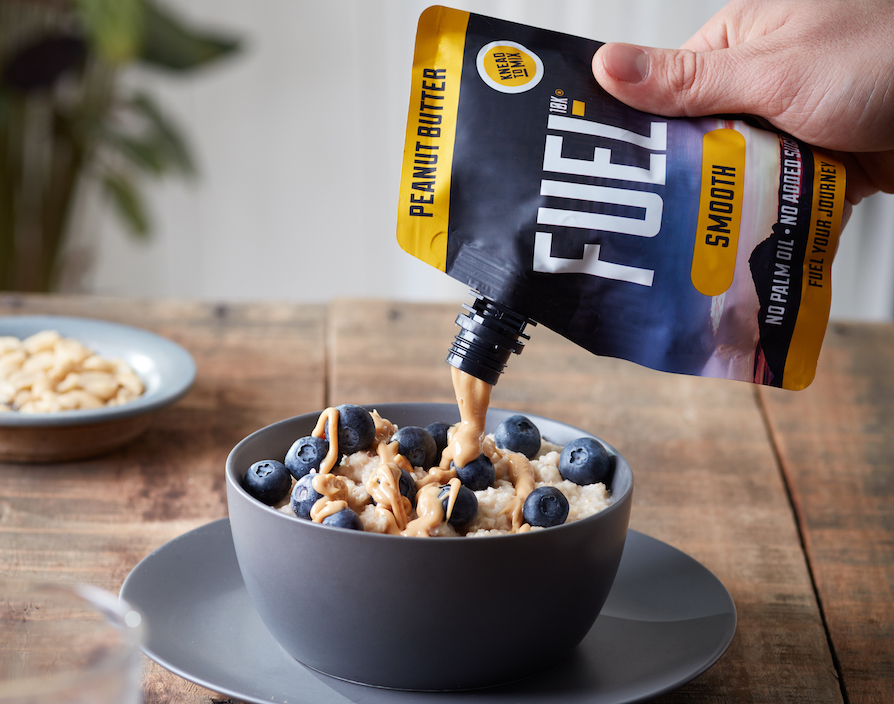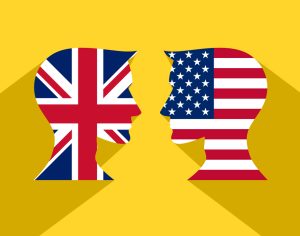Barney Mauleverer is a man who knows a thing or two about food and drink, especially when it comes to appetites overseas. After all, he spearheaded international strategy at Innocent, the smoothie maker, having joined in 2000 just six months after the company launched. “My job spec was ‘Here’s a caravan, go and sell to anyone with a funny accent,’” recalls Mauleverer. “So literally I was given that brief and took off in a caravan to try and hunt down anyone who might wear a kilt or have an accent that wasn’t West London.”
His first win for Innocent resulted in him securing Ireland before it joined the euro. “We got the Irish market up to 10% of the UK business,” Mauleverer details. “And as they joined the euro it became very buoyant and that really gave me my first flavour of international operations.” From that point onwards, he begun calculating countries that would be ripe for picking, which resulted in offices opening in France, Holland, the Nordics and Germany.
After some six years in the role, Mauleverer had guzzled a wealth of international information, which led him to realise his knowledge could be of use to other young brands, prompting him to leave Innocent. From there he launched a food and drink-centric export consultancy venture in 2006, earning his former employer as a client in France. “I left Innocent to set up Fresh Marketing, which was to help these brands accelerate into Western Europe to begin with but also the Middle East and Far Eastern markets, which we’ve been doing for the last 13 years or so,” he details. While some would come and go, others – such as Eat Natural and Burts Chips – became exemplary successes.
In terms of sniffing out edible entrepreneurial endeavours, looking to the US was often a fruitful undertaking. “Most of these brands were establishing themselves quite well in the UK and following food trends from west coast America and New York,” says Mauleverer. Such trends would subsequently spread across the globe, which Fresh Marketing aimed to capitalise on. “We were trying to pick up brands in the UK that had foundations in the States that we could then take east,” he continued. “Smoothies originated in the States, came to the UK and then went out into Europe three to five years later. Cereal bars followed the same track and coconut water or vitamin water are more recent ones.” He points to an annual Anaheim trade show as a place where “you can almost look into the future” to discover what’s set to become of the food sector in the UK and then Europe.

Of course, some of the developments would seem bizarre or unheard of to those not in the know – and that’s the point to an extent. “We’ve met quite a lot of brands, so we feel like we’ve got our nose right at the coalface for what’s working, what isn’t and what brands are likely to make it,” says Mauleverer. “We’re looking at products that highlight new topics [such as] the normalisation of protein, which used to be reserved for gym junkies and now it’s already become big in the UK.” In fact, it was the power of protein that energised him to think beyond Fresh and take a go at co-founding a brand of his own – FUEL10K.
Witnessing the good, the bad and the ugly side of creating a food and drink brand through clients, it seemed like too good an opportunity for Mauleverer to pass up and get his hands dirty. Indeed, while Fresh is a solid business, it’s a distribution channel rather than a tangible good you can hold or indeed consume. “[We weren’t] building a brand or something that’s saleable,” reasons Mauleverer of the consultancy. “We’ve helped many brands become successful and some have ended up selling and doing very well for themselves. We wanted to use our network and experience to create some value for ourselves as well.” And that’s where FUEL10K came in.
Seeing the rising trend of protein in the crystal ball country of the US and the declining demand for breakfast in Britain, FUEL10K was built to fuse the two together and ignite a new hunger with a freshly-squeezed product. The brand started with protein-rich breakfast drinks, then added porridge, granola and more to its roster. “We thought if we could design a product in a brand that spoke to younger consumers that believe in the category then we might stand a chance,” says Mauleverer.
Having operated since 2013, FUEL10K has previously partnered with Tough Mudder to generate brand awareness and it can be bought from the big four supermarkets of Tesco, Asda, Sainsbury’s and Morrisons, as well as Co-op, Waitrose and more. As the business moves towards global growth though, even by leveraging Mauleverer’s two decades of experience, it’s not as simple as sending goods overseas and achieving sales. For example, although the US is generally the ideas factory for new goods, it presented a significant opportunity for FUEL10K. “A couple of years ago we met with a number of retailers over there,” he says. “[We] actually ended up with quite a significant listing with a big retailer, which we ended up pulling back on because we just didn’t have the finance to be able to really do it properly.”
Similarly, moving to Australia, which is ripe for FUEL10K to attack as it’s a market familiar with breakfast drinks, had to be put on ice. “[In 2017] I went to Australia three times and met with Woolworths and very nearly got a starting point in all of those stores but at the time we weren’t quite ready to take that on,” says Mauleverer. “We were 85% certain it was all going to happen but because it wasn’t 100% we made the decision not to [move forward] because if that 15% came in, it could have really rattled us.” Thinking with his head rather than his heart, that too was walked away from in order to launch with a more strategic method. “I think we would get more success coming with a range of four or five products that solve a problem over there rather than just trying to compete with the local incumbents.”

It’s not always easy to step away from lucrative propositions to scale, admits Mauleverer. But if the risk is too high, it’s a case of having to do so for the greater good. “We’ve been on such a crazy train for a long time, you’ve got to pick your battles,” he says. “Sometimes we can be really opportunistic and turn things around very quickly. But if it might destabilise the home market, you just want to take steps carefully. So when considering any market, like we did with the States and Australia, we have five stars that have to align.” They include ensuring there are hungry consumers, retail destinations to work with, brand control, whether the production will need to take place in the UK or in the local market and, perhaps most important of all, being certain the finances can cope. “We haven’t taken any finance on since we’ve started. Maybe now is quite a good time to consider that,” he adds.
Clearly FUEL10K is wise to walk before it can run. But some companies don’t understand the importance of biding their time, which can be to their detriment – something Mauleverer has learnt through Fresh. “Sometimes new brands aren’t formed enough to consider international [growth], let alone their own home market,” he says. “As a very general rule of thumb, I wouldn’t get involved with a brand that hadn’t been around for at least two years.” That means it needs a significant supermarket listing or similar at the minimum to receive his counsel. “Export is not an easy play, there are lots of moving parts and any brand will need to be able to survive reputation, find a solution for labelling, complexity around palletisation and logistics, shelf life etcetera, not least of all having enough stock to be able to manage the quite yo-yo ordering that export brings.” Another important element that needs to be in place to go global is ensuring the commercials are up to scratch. Just because something works in the UK doesn’t mean it will translate in other markets.
One of the misunderstandings that Mauleverer seems to face when dealing with his clients is that they want to be on overseas shelves yesterday. “I think more often than not, there’s a myth out there that exports should be more possible in the UK and should happen quicker,” he notes. “And that is a myth I try and dispel time and time again.” Another area that brands trip over is the amount of work behind their international roadmap – it can’t be done half-heartedly. “If you think about the energy and effort they’re putting into the home market in terms of websites, trade shows, PRs and all that stuff, to expect a country on the other side of the world will get your brand and be successful without all the energy and support it has in the UK is also a thing to get into people’s heads,” Mauleverer continues.
While he is well aware of the places FUEL10K will have appeal, Mauleverer likes to gauge the thoughts of Fresh clients to see where they would like to enter with their goods. “Very quickly you get the feedback if the products work, the prices work, the branding is right, then you start focusing on the markets that are picking up the concept,” he says. “A lot of UK brands immediately ring-fence America and we’re almost delighted to leave them to it. It’s a very expensive and difficult market to get right.” And that’s precisely why he’s been so keen to ensure all boxes are ticked accordingly to give FUEL10K lift off. “When you have your own brand, you look at it in a slightly different way and strategically it was really important we did really well in one place before stretching ourselves too thin,” insists Mauleverer.

Rather than blindly entering new countries and hoping for the best, he concedes FUEL10K isn’t going to be all things to all people. “If you take a brand like Burts Chips, a crisp brand has got quite broad appeal, people know what crisps are internationally,” Mauleverer says. “Whereas with our product in breakfast drinks, which we sell in the breakfast aisle in the UK, the French just don’t get it. They don’t eat breakfast like we do, they don’t really have a breakfast aisle like we do, so the thought of drinking a breakfast in France is probably not high on their agenda.” But the US, Australia, South Africa and the Nordics are all areas he believes are in the Goldilocks zone, much like Baby Bear’s porridge. “At the beginning of 2018 we started South Africa,” details Mauleverer. “We’re in a chain of stores there called Dis-Chem, which is bit of a cross between Holland & Barrett and Boots. We’re in gyms and also in a number of health food stores. We have pockets of FUEL in Norway, Finland and Sweden. And we’re just about to start in Germany.”
Just a couple of weeks before we spoke, Mauleverer had been in Shanghai at a trade show and that region appears to be one FUEL10K can add to its plan for growth. “We think we’ve found the right route to market to take on some import distribution in Shanghai and further afield, particularly for our milk products so that will be quite interesting to see what comes of that,” he says. Likewise a Canadian contact that’s been in cahoots with Mauleverer for a long period believes now is the right time to restart conversations. “Much of it is timing, when people feel like it’s ready and you’ve been around long enough [for them] to say ‘Okay I get it, I see what you’re trying to do’,” he explains. “When you’re launching something new and different, people want to see you be successful before you start exporting.”
Of course, no conversation about global expansion could end without Brexit rearing its ugly head. “The benefit of Fresh Marketing is we were pretty aware of the pitfalls around export, having fallen into plenty of them over the years,” Mauleverer opines. As a result, the business is able to navigate changes well, having adapted throughout the years. So even if a hard Brexit arises, while more expertise will be required due to new complexities, it’s a bridge that will just need to be crossed at the time. “I don’t think it’s anything to shy away from or be worried about,” he concludes. “The bottom line is the world likes trading with each other and we’ll all want to make it as easy as possible. We don’t grow much [food] in this country compared to other countries but we’re good at concept-building as a country. And we should lean on that and have confidence that’s something the rest of the world wants to trade with.” ![]()
Share via:








































